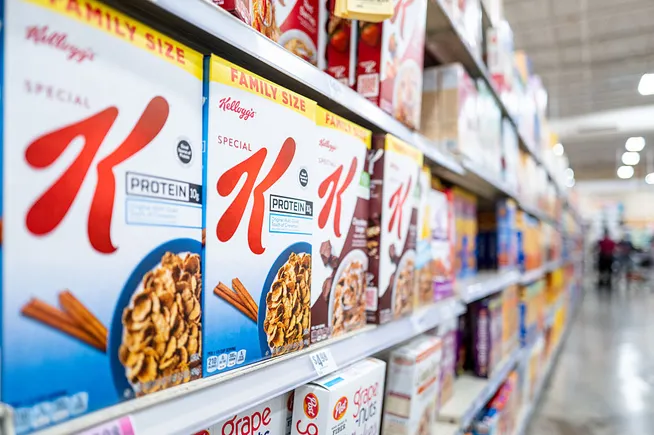Breakfast is undergoing a transformation as cereal, once a staple, is losing its appeal. Major food companies like General Mills and WK Kellogg are strategizing on how to revive the declining cereal category.
Factors such as changes in morning routines, increased costs, and concerns over sugar content have contributed to the prolonged decline in cereal sales. With consumers becoming more conscious of inflation, companies are now prioritizing efforts to revitalize the cereal market.
WK Kellogg, the maker of Froot Loops, experienced a 6.2% decline in first-quarter sales compared to the previous year. Similar challenges are being faced by its competitors. General Mills CEO Jeff Harmening acknowledged in a March investor call that cereal’s performance was subpar, while Post Holdings, owner of brands like Fruity Pebbles, recently shuttered two cereal plants due to industry headwinds.
Many cereal giants are responding to consumer demand for healthier options, recognizing that shoppers are willing to pay more for products perceived to be nutritionally superior. Brands like Magic Spoon, offering high-protein and sugar-free cereals, have gained market share over traditional brands. PepsiCo’s Life brand launched Mighty Life, a multigrain cereal targeting immunity boost.
There is a growing trend towards premium organic and natural cereals marketed as healthier alternatives within the struggling category. Post Holdings’ COO Jeff Zadoks noted that consumers are willing to invest in products they deem beneficial for their health, even at a higher price point.
To cater to this health-conscious segment, major companies are revamping iconic brands with added protein or reduced sugar options. Kellogg introduced Special K Protein, while General Mills unveiled Cheerios Protein.
“As the category evolves, we need to evolve with it,” stated Kellogg CEO Gary Pilnick during an earnings call in May.
Efforts are also underway to reshape cereal’s image as unhealthy or overly sweet through increased marketing and product redesigns. WK Kellogg faced pressure to eliminate artificial dyes from its cereals, and there are calls from Health and Human Services Secretary Robert F. Kennedy Jr. to phase out synthetic colors as part of the “Make America Healthy Again” initiative.
“We believe the entire cereal category should be viewed more positively from a health standpoint,” Pilnick emphasized.
WK Kellogg is shifting its focus towards health and wellness brands like Special K and Kashi, which are undergoing a relaunch. Pilnick stressed that consumer interest in health and nutrition is not a passing trend, prompting the company to accelerate efforts to emphasize these better-for-you attributes.
“While smaller brands are succeeding in the market, we have the potential to do the same,” Pilnick reassured investors.

